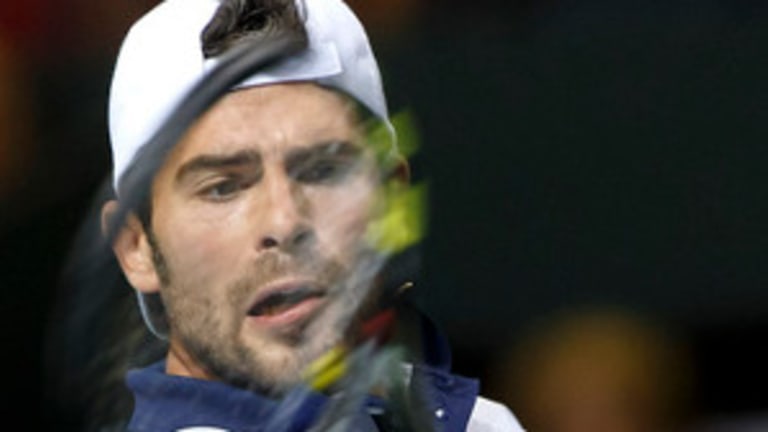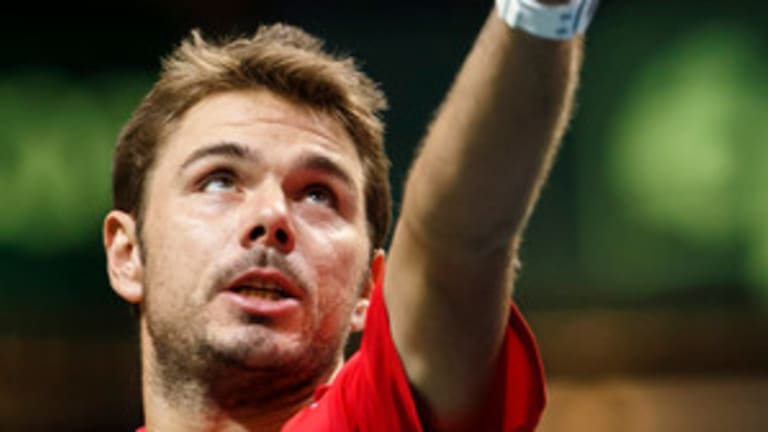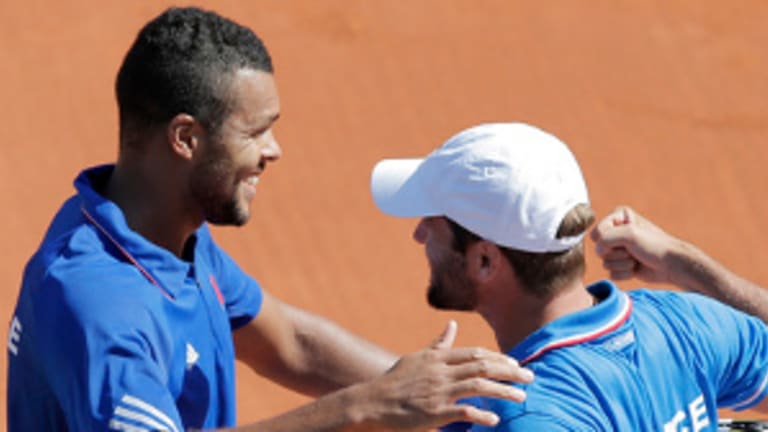It was a pure, extended Davis Cup moment, the kind that a fan of the competition would point to as an embodiment of all that is unique, and unrivaled, about the world’s second most popular international team competition.
Roger Fed—er, make that Switzerland, represented by Roger Federer, was a set and 5-4 up on Italy, which had elected to send Simone Bolelli forth as its No. 2 singles player. Now it was 30-all, and the chant of “Hopp Suisse” resounded throughout the Palexpo arena in Geneva. Customarily undemonstrative, the Swiss were chanting, blowing horns, ringing cowbells and generally rocking the joint, and who could blame them? That was their golden child Federer out there, playing for his country, beginning his quest to lead the heavily favored home side into the Davis Cup final for only the second time.
The first time, in 1992, the Swiss team consisting of Jakob Hlasek and Marc Rosset (the other two members stood no chance of playing) had to travel to Dallas to play a United States team that featured Pete Sampras, Andre Agassi, and Jim Courier—with aging John McEnroe also on hand to play doubles. What could anyone expect, but a loss that was only slightly softened by the fact that the Swiss averted a sweep when Rosset defeated Courier in the five-set, second-singles rubber?
Now it was different. The shoe was on the other foot. The Swiss squad featured the all-time Grand Slam singles champion, backed up by world No. 4 and reigning Australian Open champ Stan Wawrinka. Who did the Italians have? Fabio Fognini, an emotional head-case ranked No. 17, supported by a couple of clay-court specialists, only one of whom was inside the Top 50—No. 48 Andreas Seppi, who was overlooked yesterday by team captain Corrado Barazzutti in favor of Bolelli, ranked No. 76.


